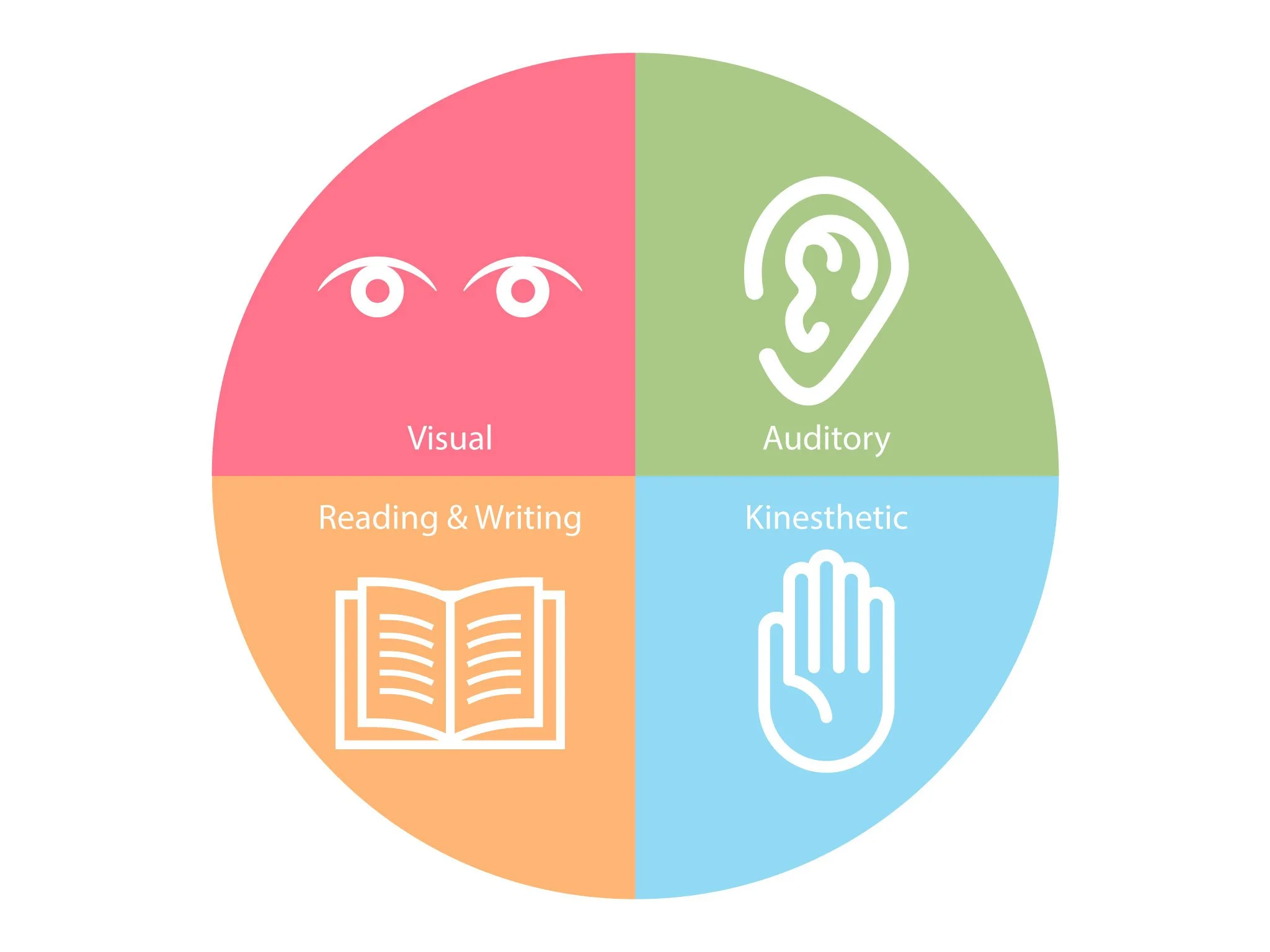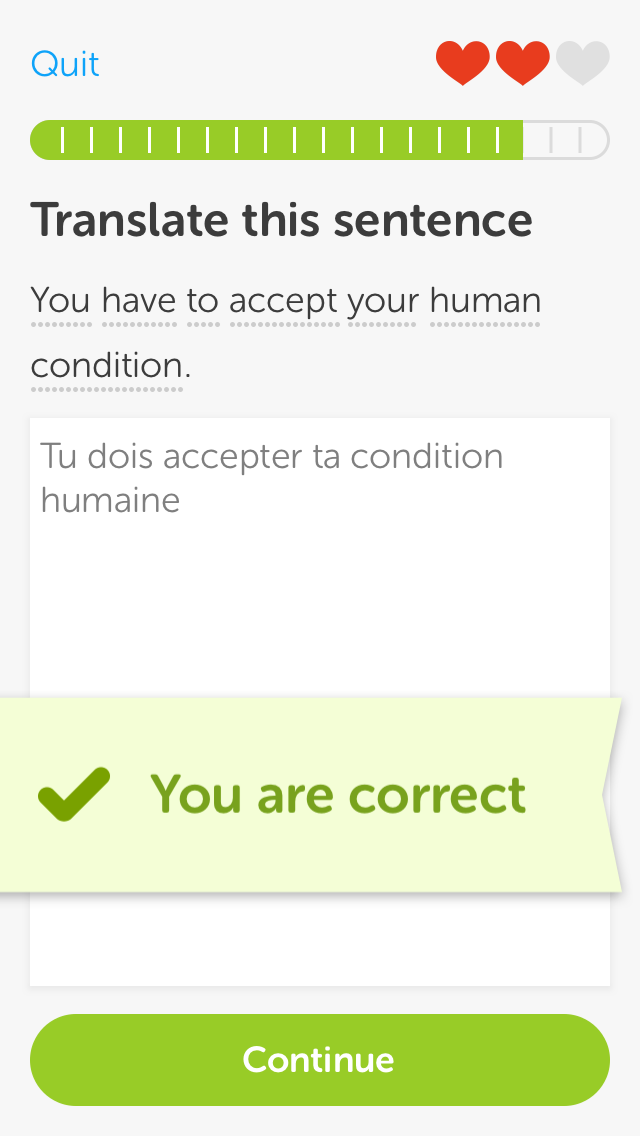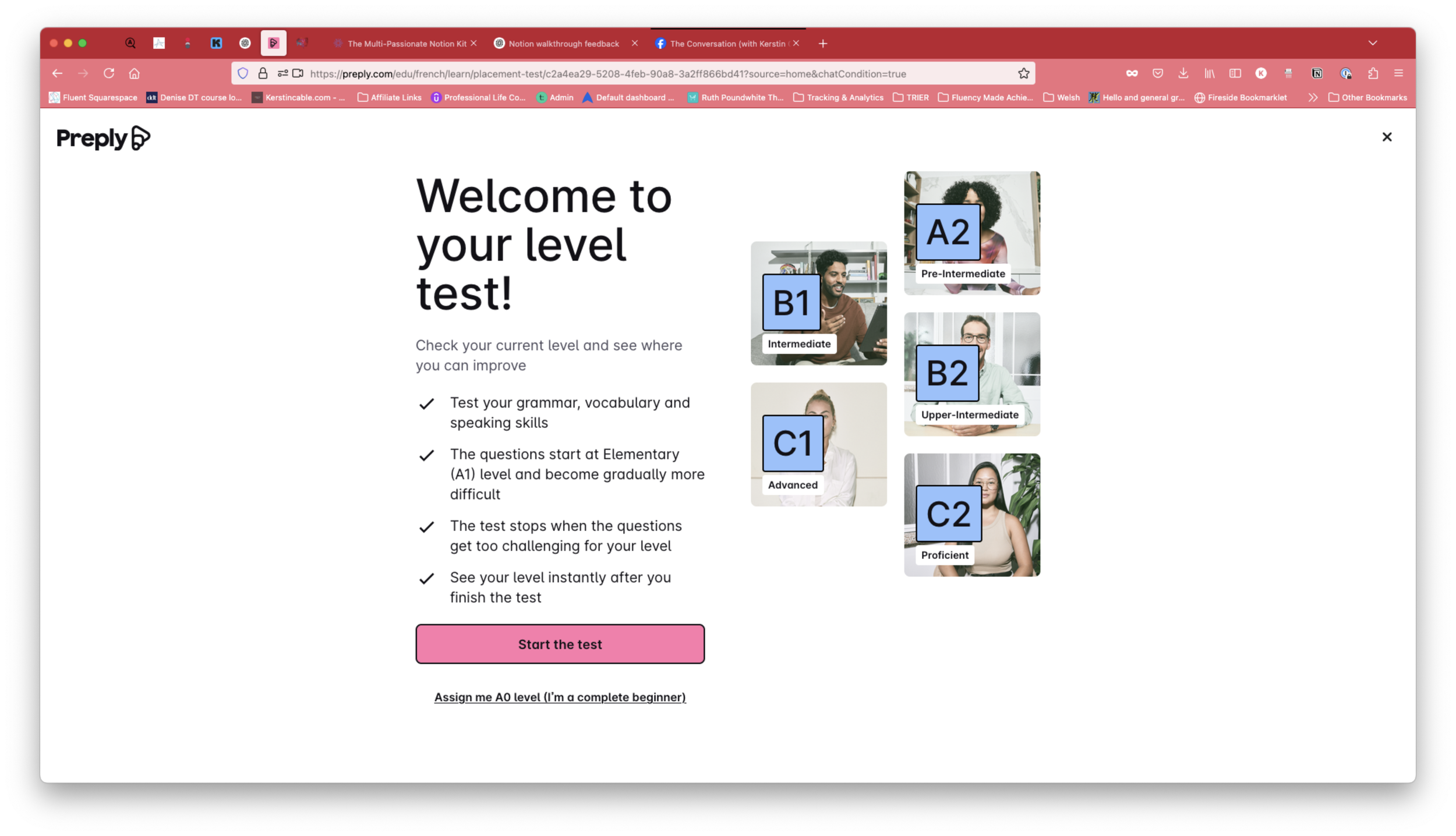I was brilliant at languages in school.
Well, sort of. I loved languages. I did not love sitting through forty-five minutes of someone talking at the front of the classroom while my brain quietly wandered off to think about what was on telly later.
Here's what actually worked: making notes. Lots of notes. Colour-coded, reorganised, rewritten until they made sense. And listening to the same English language songs over and over until I knew each word by heart.
If You're Stuck, It Might Not Be the Language
A lot of intermediate learners hit a wall and assume they've reached their natural limit. You've got the basics down, you can hold a simple conversation, but somehow you still feel like you’re on pause.
Often, the issue isn't what you're learning. It's how you're trying to learn it.
You might be forcing yourself through podcasts when you're someone who needs things written down. Or grinding through textbook exercises when you'd actually thrive with conversation practice. Or watching endless YouTube videos when what you really need is to get your hands dirty and do something with the language.
VARK: A Useful Learning Framework for Language Lovers
There are about seventy different learning style models floating around (academics love this sort of thing). But one of the most straightforward and genuinely helpful ones is called VARK - which stands for Visual, Auditory, Read/Write, and Kinaesthetic.
image credit: Preply Images, Creative Commons BY 2.0, via Wikimedia Commons.
I love how discovering your learning style can build confidence and encourage you to try out something new. But quick disclaimer: No need to be a bit too attached to your "type" and start assuming you can't learn certain ways, or that you should avoid input that doesn't match their preference. That's not the point. You can still benefit from listening practice even if you're primarily a visual learner. A lot of people are multimodal, meaning they will work well with a mix of elements.
Let me walk you through each VARK style, with actual practical ideas you can try this week.
🔵 Visual Learners: You Think in Pictures
If you need to see something written down even after someone's explained it, or if you naturally organise things with colours and diagrams, this is probably you.
What to try:
Mind map your vocabulary by theme with drawings and colours
Watch films with subtitles in your target language
Use charts to track verb patterns
Stick illustrated Post-its around your space
🟣 Auditory Learners: You Process Through Sound
You remember song lyrics from years ago. You talk things through out loud to make sense of them. Rhythm and repetition work for you.
What to try:
Listen to podcasts even if you only catch half of it
Read texts aloud to yourself (no one's judging)
Join conversation groups or find a language partner
Make up silly rhymes for grammar rules that won't stick
🟢 Read/Write Learners: You Need to Get It Down on Paper
You like organising, rewriting, making lists.
Take Sarah, one of our AI Language Club members. She'd been learning Spanish for ages but felt stuck until she realised she's a read/write learner. Now she keeps running notes, makes checklists for what she wants to practice, and writes out her own explanations of tricky grammar points.
What to try:
Keep a language journal
Rewrite grammar explanations in your own words
Make glossaries and vocabulary tables
Write summaries of things you've read or watched
🟡 Kinaesthetic Learners: You Learn by Doing
You need to move, touch, make things. Sitting still and "studying" feels impossible.
What to try:
Cook from recipes in your target language
Use gestures when practicing phrases
Try cultural crafts or activities
Give yourself real tasks - write an actual email, order something, follow instructions
Here's What Changes When You Know This
Once you understand how you naturally process information, you can stop fighting yourself.
You stop forcing yourself through methods that were never going to work. You stop comparing your progress to people whose brains operate completely differently. You build learning habits that actually stick because they're designed for you.
And here's the brilliant bit about AI Language Club: we create different types of activities and tools precisely because we know people learn differently. Some members love our image generation games. Others prefer the structured exercises. Some people thrive with our reading materials, others with the audio content.
There isn't one "right" way to learn. There's the way that works for you.
What Now?
If you're stuck at intermediate and suspect your learning approach might be part of the problem, AI Language Club gives you the variety to experiment and find what clicks.
We've got visual materials, audio practice, written exercises, and hands-on activities. Different tools for different brains. And a community of people who get that there's no single path to fluency.


























